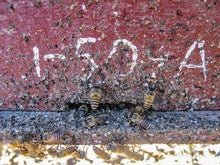 |
| January 11, 2021 |
Dear Reader,
Following the violent insurrection at the U.S. Capitol Building last week, incited by President Donald Trump, Americans and people around the world want to know more about the motivations and mentality of the rioters. Will they be a long-term presence in our political system? In an interview with a forensic psychiatrist, senior editor Tanya Lewis discusses the psychology behind Trump's destructive behavior, what drives some of his followers—and how to free people from his grip when this damaging presidency ends. Plus, today's lead story by militia expert Amy Cooter explains why it is unfortunately likely that we will continue to see violent efforts to disrupt the Biden administration in the next four years. |
| | Sunya Bhutta, Senior Editor, Audience Engagement
@sunyaaa | |
 |
| |
| |
| |
| |
| |
| |
| Behavior & Society The Science of Spiritual Narcissism Self-enhancement through spiritual practices can fool some of us into thinking we're evolving and growing when all we're growing is our ego | | | | |
| |
FROM THE STORE
 | | Scientific American Unlimited For just $199 a year, Scientific American Unlimited gives you access to all of our publications, apps and the full website experience. |  | | |
| |
| QUOTE OF THE DAY
 "When a highly symptomatic individual is placed in an influential position, the person's symptoms can spread through the population through emotional bonds, heightening existing pathologies and inducing delusions, paranoia and propensity for violence--even in previously healthy individuals. The treatment is removal of exposure." Bandy X. Lee, forensic psychiatrist at the Yale School of Medicine | |
LATEST ISSUES
 |
| |
| Questions? Comments?  | |
| Download the Scientific American App |
| |
| |






















Comments
Post a Comment